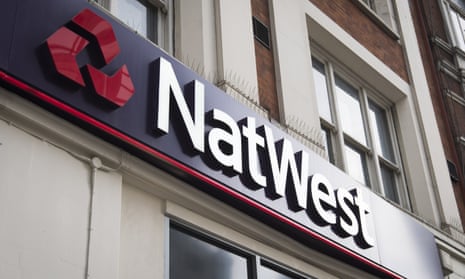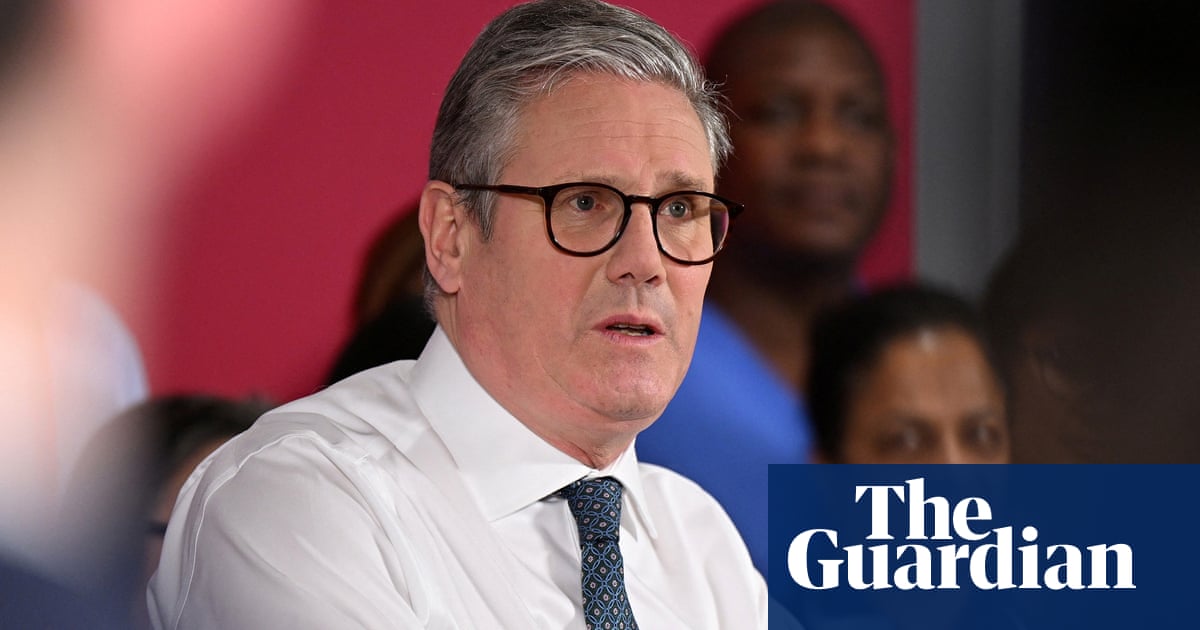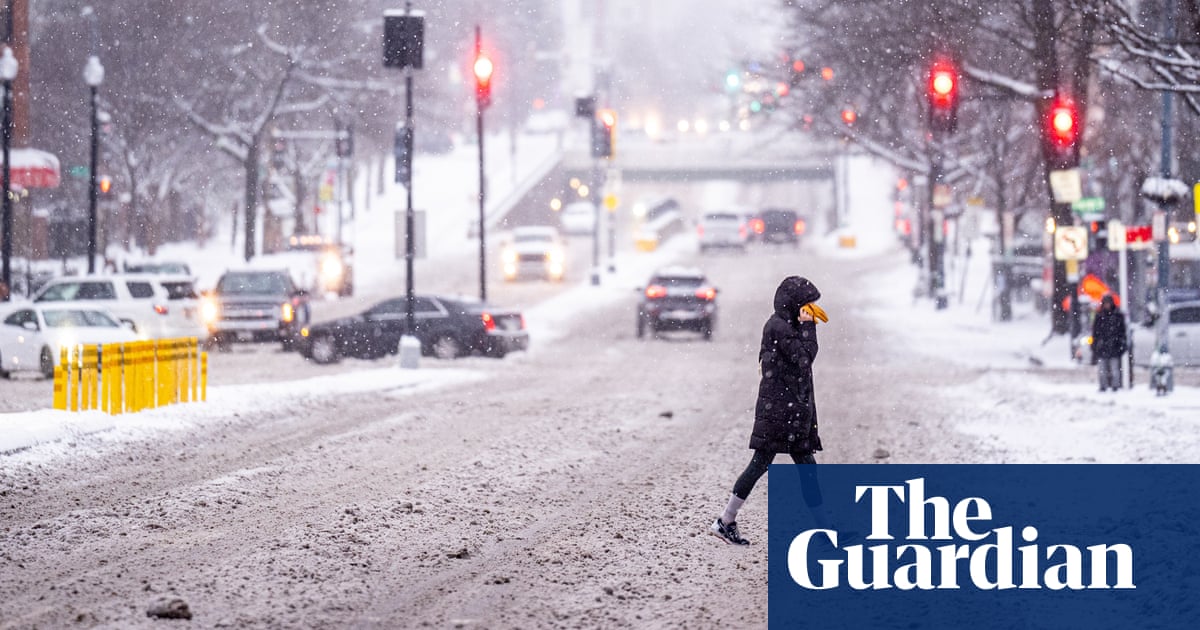IFS verdict on budget

Richard Partington
Rachel Reeves could be forced to find more money to fix public services after her budget made a start at reversing the “unrealistic” and irresponsible spending plans of the Conservatives, the Institute for Fiscal Studies has said.
Britain’s leading experts on the government finances said the chancellor’s tax measures on Wednesday had allowed for a substantial short-term increase in public servicing spending this year and next, but not thereafter.
Paul Johnson, the director of the IFS, said there would need to be “more to come” after Labour’s first budget in 15 years outlined £40bn of tax increases needed for the emergency cash injection.
Saying the spending plans amounted to “pretending” that Labour would splurge in the early years before reining in spending in future, he said:
That’s not going to happen. The spending plans will not survive contact with her cabinet colleagues.”
I am willing to bet a substantial sum that day-to-day public service spending will in fact increase more quickly than supposedly planned after next year.
The IFS said that while the spending increases announced by Reeves appeared big relative to the previous government’s plans, this was in large part because “their plans were unrealistic”.
“Despite the apparent scale of the increases, this is not going to feel like Christmas has come for the public realm,” Johnson said.
Key events Show key events only Please turn on JavaScript to use this feature
US PCE inflation falls to lowest since 2021, almost hitting Fed's target
Inflation in the US on the Federal Reserve’s preferred measure has fallen to its lowest level since early 2021.
The closely watched measure of US inflation slipped to within striking distance of policymakers’ target after the Fed scrambled to bring down price growth from its highest level in a generation.
Inflation, measured by the personal consumption expenditures price index, declined to an annual rate of 2.1% in September from 2.3% in August, according to the Bureau of Economic Analysis.
Core PCE inflation, excluding volatile food and energy, remained at 2.7%, though, against hopes that it would slip too.
JUST IN: PCE inflation declined to 2.1% (y/y) in September — That’s the lowest since early 2021 and basically at the Fed’s 2% target.
“Core PCE” (which excludes food and energy) remains at 2.7% for the past year. There was hope that would tick down as well, but it didn’t in… pic.twitter.com/q1A71mGUuV
There is a sight of relief across the City as the budget could have been worse – says Vivek Rajak, financial sector analyst at Shore Capital.
The budget ushered something of a relief sigh across the general financials sector as speculation, which exacerbated share price movements in the preceding days, came to an end. It was less bad than feared in terms of inheritance tax, pensions taxes, betting duty and AIM’s future.
Negatives for the sector are higher capital gains tax and employers’ NIC, which will raise costs. This was a Budget aimed at income rather than savings and with pensions taxes set to rise, the medium-term outlook for assets under management formation has marginally reduced.
10-year gilt yield hits one-year high; eurozone, US yields at multi-month highs
UK government bonds are extending their post-budget sell-off, pushing yields higher.
This is response to the planned higher borrowing in coming years, and as investors scaled back bets on interest rate cuts, with yesterday’s budget measures expected to push inflation higher.
The Office for Budget Responsibility has warned that the budget would lead to slightly higher inflation, which could lead the Bank of England to keep interest rates higher for longer.
The 10-year gilt yield has climbed by 7.5bps to 4.42%, the highest in a year.
But eurozone bond yields are also up and on track for the biggest monthly rise since April – as investors expect a slower pace of interest rate cuts from the European Central Bank.
The yield, or interest rate on Germany’s benchmark 10-year government bond rose as much as 5 basis points to 2.425%, its highest since late July and is now at 2.41%.
The eurozone benchmark yield has increased by 27bps in October, which looks to be the biggest monthly gain since April.
Investors are digesting the latest data and what it means for interest rates. Eurozone inflation was higher than expected at 2% in October, according to Eurostat’s flash estimate today. The eurozone economy grew by 0.4% in the third quarter, faster than expected albeit still fragile, data showed yesterday.
US Treasury yields have also risen sharply – by 47bps this month, which if sustained will be the biggest increase in six months.
The government has further sold down its shareholding in NatWest Group, reducing its stake to 14.81% – halving it since March.
A spokesperson for NatWest Group said:
In March, the government’s shareholding moved below the 30% milestone. We are pleased that the continued momentum of the government’s trading plan and other activity has now halved that position to below 15%.
Returning NatWest Group to full privatisation is a shared ambition and one that is in the interest of all our stakeholders.
The government stake in NatWest is what remains from the 84% holding taken by the taxpayer at the height of the 2008 financial crisis. At the time, the UK government bailed out the bank, then called Royal Bank of Scotland, to the tune of £45.5bn to help save the UK’s financial system from collapse.
The government says it intends to exit its stake in the bank by 2025-26, but a retail offer – selling shares to the public – has been ruled out.

Bank of England launches group of AI experts
The Bank of England has launched a search for a new group of artificial intelligence (AI) experts, as it raises concerns over the risks that the technology might pose to financial stability.
Sarah Breeden, the central bank’s deputy governor with responsibility for financial stability, flagged the risks in a speech entitled ‘Engaging with the machine: AI and financial stability’.
AI is expected to bring considerable potential benefits for productivity and growth in the financial sector and the rest of the economy. But for the financial sector to harness those benefits we, as financial regulators, must have policy frameworks that are designed to manage any risks to financial stability that come with them. Economic stability underpins growth and prosperity. It would be self-defeating to allow AI to undermine it...
We should be alive to the possible need for macroprudential interventions to support the stability of the financial system as a whole. We should keep our regulatory perimeters under review, should the financial system become more dependent on shared AI technology and infrastructure systems.
She said the Bank was launching an AI consortium of the private sector and AI experts “to help us understand more deeply not only AI’s potential benefits but also the different approaches firms are taking to managing those risks which could amount to financial stability risks”.
We will consider what we can do to spread best practices widely in the industry and whether further regulatory guidelines and guardrails are needed.
The central bank’s financial policy committee will publish its assessment of AI’s impact on financial stability and set out how it will monitor those risks going forward.

The Bank already warned last December that rapid developments in artificial intelligence and machine learning could pose risks to the UK’s financial stability.
UK home sales jump 9% in September
The number of UK home sales in September rose by 9% year-on-year, according to figures from HM Revenue & Customs (HMRC).
Across the UK, an estimated 91,820 properties were sold in September, which was a tad higher than in August. This was the first time sales increased month on month –albeit by less than 1% – since May, HMRC said.
In the financial year so far, between April and September, an estimated 547,350 home sales have taken place. Hope has started to return to the housing market but sales growth has stagnated in recent months, property experts said.
Nick Leeming, chairman of estate agency group Jackson-Stops, said home buyers have been “pressing on with their searches amid falling interest rates and positive wage growth”.
Post-budget round-up
Here is our full story on the IFS verdict on the budget:
The budget is likely to mean smaller pay rises for workers because of the impact on businesses, Rachel Reeves has conceded.
The chancellor said she recognised “there will be consequences” to her first budget, which includes £40bn in tax rises, more than half of which come from increasing tax on businesses.
The International Monetary Fund has welcomed the measures announced by Rachel Reeves in her first budget, saying her £40bn of tax rises would boost growth “sustainably”.
In a rare intervention, the Washington-based IMF backed her increase in investment and extra spending to ease the financial pressure on public services and boost growth.
A spokesperson for the fund said new budget rules showed the government was committed to bringing down the UK’s debts over the longer term.
“We support the envisaged reduction in the deficit over the medium term, including by sustainably raising revenue,” they said, adding that the IMF approved of the government’s “focus on boosting growth through a needed increase in public investment while addressing urgent pressures on public services”.
Eurozone inflation rises more than expected to 2%
Inflation in the eurozone picked up more than expected, rising to 2% in October, mainly driven by energy and food prices.
The annual inflation rate was up from 1.7% in September, according to a flash estimate from Eurostat, the statistical office of the European Union. Core inflation, which strips out energy and food costs which tend to be volatile, stayed at 2.7%, also slightly higher than expected.
Separate figures from Eurostat showed unemployment came in at 6.3% in September –stable compared with August, and at a historic low since the eurozone was established in 1999.
Services inflation is estimated to have the highest annual rate in October (3.9%, stable compared with September), followed by food, alcohol & tobacco (2.9% versus 2.4% in September), non-energy industrial goods (0.5% vs 0.4% in September) and energy (-4.6% vs -6.1% in September).
In the biggest European countries, inflation is estimated to have risen to 2.4% in Germany from 1.8% in September, while France had 1.5% inflation versus 1.4% and price increases picked up to 1% in Italy, from 0.7% in September.
You can see the full country by country breakdown here.
“The direction of incoming data in the region is not quite clear, which provides the European Central Bank with confusing signals for the path of rate cuts,” said ING economist Bert Colijn.
After the rapid decline in September, this provides a reality check about the eurozone’s disinflationary process.
The ECB frequently used the motto that ‘the last mile is the hardest’ when it comes to inflation fighting before summer, but hasn’t done so recently. The slow decline in core inflation gives us the feeling that there is still some truth to that. The labour market remains tight at the moment, which still adds to wage pressures. We expect wage growth to come down over the course of 2025 as labour market tightness continues to ease, but we aren’t seeing this effect just yet.
He said the drop in unemployment to a historic low indicates that inflationary pressures from the job market are not yet a thing of the past.
Including yesterday’s accelerating GDP growth figures, this week’s data has provided some counterweight to the ECB’s dovish view presented on inflation at the October press conference. ECB President Christine Lagarde referred to all data pointing in the same direction: downward.
Two weeks later, all data points in a different direction: upward. Lagarde has often warned against data point dependency, but may have fallen into the trap of the plural of that – data points dependency.
Summing up, Colijn said:
Taking a step back from the short-term confusing signals, we see a eurozone economy that continues to struggle to rebound, with third-quarter GDP data overstating momentum due to one-offs.
The job market remains strong, but with profit growth down, we expect this to affect the labour market negatively over the course of next year. This keeps demand driven inflation down, which should help to bring inflation – including core – down to target in 2025. Still, upside risks to the outlook remain as labour market pressures have yet to fade and wage growth remains elevated for now.
IFS verdict on budget

Richard Partington
Rachel Reeves could be forced to find more money to fix public services after her budget made a start at reversing the “unrealistic” and irresponsible spending plans of the Conservatives, the Institute for Fiscal Studies has said.
Britain’s leading experts on the government finances said the chancellor’s tax measures on Wednesday had allowed for a substantial short-term increase in public servicing spending this year and next, but not thereafter.
Paul Johnson, the director of the IFS, said there would need to be “more to come” after Labour’s first budget in 15 years outlined £40bn of tax increases needed for the emergency cash injection.
Saying the spending plans amounted to “pretending” that Labour would splurge in the early years before reining in spending in future, he said:
That’s not going to happen. The spending plans will not survive contact with her cabinet colleagues.”
I am willing to bet a substantial sum that day-to-day public service spending will in fact increase more quickly than supposedly planned after next year.
The IFS said that while the spending increases announced by Reeves appeared big relative to the previous government’s plans, this was in large part because “their plans were unrealistic”.
“Despite the apparent scale of the increases, this is not going to feel like Christmas has come for the public realm,” Johnson said.
On taxes, Johnson said:
We are all by now aware that employers National Insurance contributions (NICs) are set to rise, and to rise a lot. Given the scale of the tax rise required it was inevitable that one of income tax, VAT or NICs would have to increase in order to pay for higher spending, and so it has transpired.
Choosing employer NICs has some downsides. They are of course largely incident on wages. Increasing them increases the wedge between employment and self-employment, and between employment income and other income. But this is a better choice than trying to get big increases from a range of smaller taxes.
It is also worth noting that, net, this increase will not actually get the Treasury anything like the £25bn stated on the scorecard. As the Office for Budget Responsibility note, it will result in lower wages, reducing the amount raised from employer NI and reducing employee NI and income tax revenues. That takes the net revenue down to some £16bn. On top of that there will be an effective £6bn of compensation for public sector employers.
As for the rest of the tax changes, I will only say that the lack of any apparent strategy or appetite for reform is deeply disappointing.
Reeves may have to find more money in future to avoid cuts – IFS
The director of the Institute for Fiscal Studies, Paul Johnson, said Rachel Reeves could be forced to increase spending in future to avoid cuts. He also said increasing borrowing to ramp up investment spending was “the right thing to do”.
Johnson said much the most striking aspect of the spending decisions is how incredibly front loaded the additional spending is. Day-to-day spending on public services, after inflation and the additional cost to public sector employers of rising national insurance contributions, is set to rise by 4.3% this year and 2.6% next year, but then by just 1.3% each year thereafter.
Unusually the NHS is not scooping the pool. It is getting about the average spending increase. Equally unusually local government is doing rather well, as is the justice department, reflecting the severe pressures each is facing.
I am willing to bet a substantial sum that day-to-day public service spending will in fact increase more quickly than supposedly planned after next year. 1.3% a year overall would almost certainly mean real terms cuts for some departments. It would be odd to increase spending rapidly only to start cutting back again in subsequent years.
He said the chancellor made a number of big choices in her first budget, the first Labour budget in almost 15 years.
She chose to increase borrowing in order to increase investment spending – or at least to stop it falling as a fraction of national income. Given that the growth benefits of this take some time to arrive, this is a courageous move and a welcome focus on the long term. This was the right thing to do.
She chose a sensible new primary fiscal rule – that the current budget should be in balance in five years’ time, with that shortening to a three year rolling target after 2026-27. She chose to keep the rather less sensible rule that debt should be falling in the same year of the forecast, but redefined debt to a measure which will treat the National Wealth Fund more favourably, and more generally gives her a bit more headroom to borrow for additional investment.
She chose to increase taxes (on the scorecard at least) by an historically big £40bn or so, with most of that coming from employer NI. That – and an increase in borrowing – allowed her to choose to increase day to day public service spending substantially this year and next, though not thereafter.
The increases in spending look big relative to the previous government’s plans, but that is in large part because their plans were unrealistic. Despite the apparent scale of the increases, this is not going to feel like Christmas has come for the public realm. Ms Reeves may be overegging the £22bn black hole, but she is not wrong to stress that she got a hospital pass on the public finances.
Pan-European share index poised for worst month in a year
The pan-European Stoxx 600 index has been dragged down by poor results from companies, falling to its lowest level in nearly two months.
It lost 0.75%, and is on track for its worst month in a year.
Uncertainty around the outcome of the US presidential election next Tuesday is another factor. It has prompted investors to seek out assets regarded as safer bets, such as gold and the dollar.
Daniela Hathorn, senior market analyst at Capital.com, told Reuters:
Trump threatening so many tariffs – that concerns what is this giong to mean for international trade. We’re likely to see a decrease in productivity in a lot of companies that deal with the US, so investors are concerned.
We’ve spoken to a few businesses about how the budget is affecting them, such as the increase in employers’ national insurance contributions, and changes to business rates for the high street.
Rachel Reeves didn’t scare the markets. But nor did she impress with a growth plan, says our financial editor Nils Pratley. Businesses adopt a wait-and-see response as it becomes clear the autumn budget is part of a long-term mission.
People in Reeves’ constituency of Leeds West and Pudsey were more positive.
Steve Cook, who is retired but works part time driving the “Happy Cab” for the charity Bramley Elderly Action, ferrying older people around for days out and shopping trips, said the chancellor had “redeemed herself” with the budget.
I can see what they’re doing now. Yeah, they’ve won me over. They’ve saved themselves by the skin of their teeth.
On the stock markets across Europe, shares have fallen.
The UK’s FTSE 100 is trading 48 points, or 0.6%, lower at 8,110, while the German, French and Italian markets have all lost about 0.5%. Uncertainty around the tight US presidential election race is weighing on markets.
Shell is among the biggest risers on the FTSE 100 index, up 0.9%, while the artificial hips and knees maker Smith & Nephew is the biggest faller. Its shares plunged more than 13% to a one-year low. The company, the UK’s largest medical products maker, cut its annual underlying revenue growth forecast because of weaker-than-expected demand in China that is likely to continue into next year.
The pound has firmed slightly, trading nearly 0.2% higher against the dollar and the euro at $1.2981 and €1.1960.
UK government bonds extend post-budget sell-off
UK government bonds have extended their sell-off following the budget, with 20-year borrowing costs touching their highest level in almost a year.
Investors are digesting the sharp increase in government borrowing forecast by the Office for Budget Responsibility, the fiscal watchdog. They also scaled back their expectations of Bank of England interest rate cuts.
While US Treasuries and German Bund prices also slipped, there was a bigger decline in UK government bonds, known as gilts. This pushed up yields, or interest rates. The yield on the 20-year gilt rose to its highest level since early November last year, at 4.855%, up 5 basis points.
The yield on the 10-year gilt benchmark rose by nearly 4 basis points.
Yields also rose on short-dated bonds, which are more sensitive to the outlook for interest rates. The two-year gilt yield rose as much as 7 basis points.
Investors are now pricing in fewer than four interest rate cuts over the next year, compared with nearly five before yesterday’s budget, which included major increases in public spending and investment, which are expected to push inflation higher.
Rachel Reeves has just said that she “chose to be a responsible chancellor,” speaking on BBC Radio 4’s Today programme.
You can read more on our politics live blog with Andrew Sparrow.
And a few more – Resolution Foundation analysis:
-
Tax and benefit changes fall on everyone’s shoulders. The combined impact of benefit cuts, employer national insurance rises and consumption tax changes are felt evenly across the income distribution. The poorest half of households face a 0.8% reduction in their annual income on average, while the richest half face a 0.6% decrease. However, increases to capital gains and inheritance taxes (not included in this modelling) are more progressive, so wealthy households will face the largest cash impact overall.
-
A prolonged pay downturn. The combination of higher inflation and weaker growth stemming from increased taxes on employment, coming on top of an already challenging outlook, mean that real pay is set to stagnate again in the middle of this parliament. As a result, by 2028 real wages are expected to have grown by just £13 a week over the past two decades.
-
A (public) investment nation…The welcome boost to public investment, preventing the planned cuts set out by the previous government, means that Public Sector Net Investment is set to average 2.6% of GDP over the forecast period. This would be the highest five-year average in the UK since 1980-81, and bring the country close to the OECD average.
-
…or a stagnation nation? Real household disposable income per person is projected to grow by 0.5% a year on average across the parliament. While stronger than growth during the last parliament (0.3%), it would still be the worst term for living standards under a Labour government, lower even than the 0.8% annual growth recorded in the 2005-2010 Parliament.
Here are the Resolution Foundation’s main findings:
-
Britain’s National Health State. Health alone accounts for 40% of the overall £35bn real increase to day-to-day public service spending between 2023-24 and 2025-26. As a result, the 2025-26 health budget will account for 42% of all departmental spending, up from 31% in 2007-08.
-
A tight Spending Review. The decision to frontload public service spending increases into this year and next have created a tough climate for the spending review next spring. Setting a spending envelope that increases by just 1.3% a year in day-to-day spending on public services between 2025-26 and 2029-30 implies £10.8bn of real per person cuts to unprotected departments, sending their funding back to 2015-16 levels.
-
No margin for error. Having chosen a new debt rule that gives her more headroom, the chancellor has already used it up, with just £9.9bn to spare against the current balance rule, and £16bn against the public sector net financial liabilities rule. Even a modest economic downturn could force the chancellor to come back for more tax rises at a future fiscal event.
Introduction: IMF hails Reeves’ ‘sustainable’ tax rises; Resolution Foundation says budget marks ‘decisive shift from planned cuts’
Good morning. The International Monetary Fund (IMF) has welcomed the measures announced by Rachel Reeves in her budget yesterday.
In an unusual move, the influential Washington-based financial watchdog backed the increases in investment and spending on public services as well as “sustainable” tax rises. A spokesperson said:
We support the envisaged reduction in the deficit over the medium term, including by sustainably raising revenue.
Last night, a spokesperson said the fund welcomed the government’s “focus on boosting growth through a needed increase in public investment while addressing urgent pressures on public services.
The Resolution Foundation, a UK thinktank, has published its analysis of the budget and given it a guarded welcome. It said the UK budget has delivered “short-term living standards pain in the hope of long-term growth-based gains”.
The London-based foundation said the first Labour budget in nearly 15 years marked a “decisive shift” from the planned cuts set out by the last government, with better-funded public services and greater public investment coming from higher taxes and more borrowing.
But the budget has not yet delivered a decisive shift away from Britain’s record as a ‘stagnation nation’, with the outlook for growth and living standards remaining weak in this Parliament.
By prioritising extra spending on public services and investment, the chancellor is borrowing an extra £32bn a year by the end of the parliament, with another £41bn coming from tax rises.
Mike Brewer, interim chief executive of the Resolution Foundation, said:
Rachel Reeves’s first ever Budget was never going to be a crowd-pleaser, given the profound and often conflicting challenges she faced, from failing public services to perilous public finances, weak growth and stagnating living standards.
The short-term effect of these changes will be better funded public services – not just across schools and the NHS – but, critically, also in our justice system. But families are also set for a further squeeze on living standards as the rise in employer National Insurance dampens wage growth.
With Britain finally turning the page on its longstanding failure to invest thanks to a £100bn boost to public capital spending, the hope is that this short-term pain will eventually turn into a long-term living standards gain. But if it doesn’t, future budgets won’t be any easier to deliver, especially if further tax rises are needed.
Shell has beaten forecasts with a profit of $6bn for the third quarter, as weaker refining and oil trading revenues were offset by higher gas sales.
This was down slightly from $6.2bn in the previous quarter, and ahead of analysts’ average estimate of $5.36bn. The company said it will buy back a further $3.5bn of shares over the next three months.
The Bank of Japan has left interest rates unchanged at ultra-low levels, as expected, and said it was monitoring global economic developments and any risks to fragile domestic recovery. The yen gained after the central bank’s decision, trading close to 153 per dollar.
BOJ governor Kazuo Ueda said:
As for the timing of the next rate hike, we have no preset idea. We will scrutinise data available at the time of each policy meeting, and update our view on the economy and outlook, in deciding policy.
We have seen some positive US data recently. But there is still uncertainty on how past rate hikes by the Fed affect the economy and prices. We need to monitor developments carefully.
Looking at domestic data, wages and prices are moving in line with our forecast. As for downside risks to the US and overseas economies, we’re seeing clouds clear a bit.
The Agenda
-
10am GMT: Eurozone inflation flash estimate for October
-
10am GMT: Bank of England’s Sarah Breeden speaks on AI and financial stability
-
12.30pm GMT: US PCE index (the Fed’s preferred inflation measure)

.png) 2 months ago
18
2 months ago
18













































